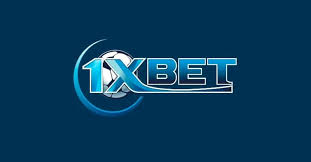- Sunday September 7th, 2025
- 1xbet32
Smart strategies for sustainable sports betting

sports betting 1xbet app update is a reminder of how quickly sports betting technology evolves, and why bettors should stay informed not only about teams and players but also about the platforms and tools they use. Sports betting has transformed from a pastime into a sophisticated ecosystem where data, psychology, and money management intersect. Whether you are a casual bettor or someone looking to build a disciplined approach, understanding the fundamentals and emerging trends can significantly improve your experience and long-term results.
At the heart of any successful betting approach lies bankroll management. Treat your betting capital like any other investment: determine how much you are willing to risk, set clear limits, and never chase losses. A common guideline is to stake only a small percentage of your bankroll on any single wager — often between 1% and 5% — depending on your confidence level and the volatility of the market you are engaging with. This conservative approach reduces the risk of ruin and allows you to withstand losing streaks that are inevitable in sports betting.
Another pillar is market selection. Not every sporting event or betting market offers the same value. Some bettors focus on niche leagues or markets where sharp edges can be found because bookmakers allocate fewer resources to price those events accurately. Others specialize in highly analyzed markets such as major football leagues or tennis, where abundant data and statistical models can be applied. The key is to find a niche that matches your expertise and appetite for research.
Data analysis and analytics have become indispensable tools. Publicly available statistics, tracking data, player heat maps, and advanced metrics allow informed bettors to identify trends that are not immediately obvious. Building or using models to estimate probabilities of outcomes can help you identify value bets — situations where your estimated probability of an outcome exceeds the implied probability indicated by the bookmaker’s odds. Value, not simply picking winners, is the concept that separates recreational betting from a more systematic approach.
Responsible sports betting also requires discipline with emotional control. The psychological component cannot be overstated: overconfidence after a winning streak or desperation after losses are common traps. Maintaining a record of bets, reviewing decisions, and sticking to predetermined staking strategies will help reduce emotionally driven mistakes. It’s advisable to set rules for when to pause betting during periods of poor performance or when external stressors might impair judgment.
Live betting has opened new avenues and complexities. In-play markets offer opportunities to capitalize on events unfolding in real time, but they are also fast-moving and often influenced by short-term noise. Successful live bettors combine quick decision-making with a clear rationale — for instance, exploiting delays in bookmakers’ odds updates after an injury or a red card, or identifying situations where the in-play market overreacts to temporary momentum. However, the increased speed of live betting amplifies the need for discipline and strict bankroll controls.
Understanding the structure of odds and vig (the bookmaker’s margin) is essential. Different bookmakers and exchange platforms present odds in diverse formats and with varying commissions. Comparing odds across multiple operators and using exchanges where possible can reduce costs and improve value. Arbitrage opportunities — where different odds guarantee profit regardless of outcome — are rare and often short-lived, but they do illustrate how market inefficiencies can be exploited when discovered quickly.
Technology also plays a central role in modern sports betting. From mobile apps to betting bots and APIs, technology offers speed and automation advantages. Tools for odds comparison, automated bet placement, and statistical modeling can improve efficiency. That said, automation requires careful oversight; programming errors or unanticipated market conditions can lead to large losses if left unchecked. Always test systems thoroughly and monitor automated strategies in real time, especially when stakes increase.

Regulation and legal frameworks vary widely by jurisdiction and have a direct impact on how bettors should approach the market. Awareness of local laws, tax obligations, and the licensing status of operators protects bettors from legal and financial pitfalls. Responsible operators often provide resources for safer gambling, deposit limits, and account controls — use these features proactively to manage risk and avoid problematic behavior.
Another trend shaping the industry is the integration of alternative data sources like player tracking, social sentiment, and machine learning models. These data sources can complement traditional statistics and offer nuanced insights, particularly in sports where raw numbers don’t tell the entire story. For example, tracking data in basketball reveals player movement and defensive positioning that influence expected shot quality, while sentiment analysis can flag market moves driven by public perception rather than true changes in probability.
Successful bettors cultivate a learning mindset. The sports landscape changes — coaches, player fitness, rule changes, and even weather patterns can alter outcomes. Continuous learning through reading, analyzing past bets, and engaging with communities or professional resources improves decision-making. Maintaining a betting journal that records the reasoning behind each wager, the odds taken, and the outcome allows for retrospective analysis and gradual refinement of strategy.
Risk diversification can also be applied within betting. Instead of concentrating all stakes on a single outcome or match, consider spreading exposure across correlated and uncorrelated events. This can smooth variance and reduce the likelihood that a single upset derails the entire bankroll. Some bettors combine long-term season wagers with short-term in-play bets to balance risk and opportunity.
Promotions and bonuses offered by bookmakers are another consideration. While sign-up offers, free bets, and enhanced odds can provide short-term benefit, they often come with wagering requirements and restrictions. Read the fine print and evaluate whether a promotion genuinely improves expected value after accounting for turnover requirements and other terms. Smart exploitation of promotions can add marginal gains, but they should not be the foundation of a betting strategy.
Integrity and ethics are foundational. Avoid activities that could compromise the fairness of sports, such as match-fixing or insider-dealing, and steer clear of betting on events where you have access to privileged information. Sustainable betting relies on fair competitions and transparent markets; undermining those principles harms both the industry and individual bettors in the long run.
Finally, consider the future of sports betting: increased regulation, wider adoption of responsible gambling measures, and deeper integration of data and AI into odds-making are likely to continue. Markets may become more efficient as technology spreads, reducing easy edges but creating opportunities for those who adapt. Building a flexible, data-informed approach and maintaining strict financial discipline will remain the best path toward a long-term, enjoyable involvement in sports betting.
In summary, sports betting is a complex blend of analysis, psychology, and risk management. Success is rarely about finding a foolproof method; instead, it’s achieved through consistent application of sound principles: controlled bankroll management, careful market selection, disciplined staking, continuous learning, and responsible behavior. Whether you are betting for entertainment or seeking to gain an edge, approaching the activity with respect for the risks and an emphasis on sustainable practices will make the experience both safer and more rewarding.
